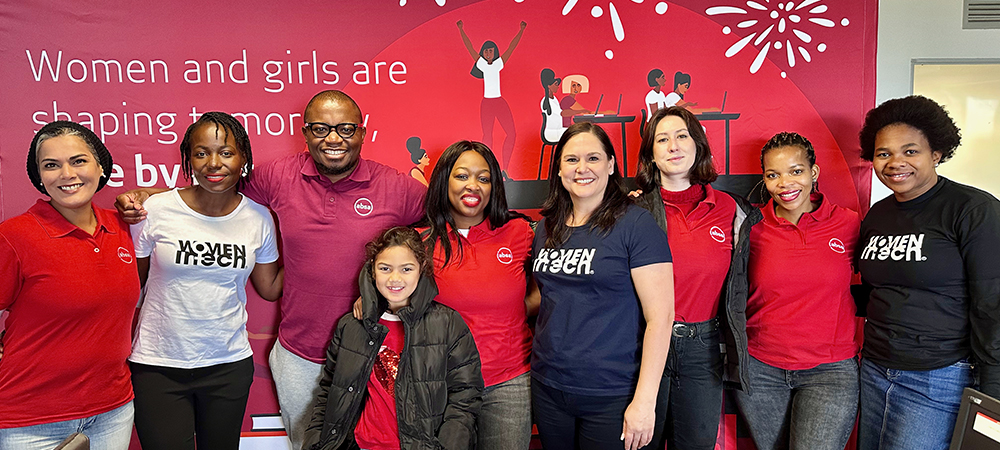Absa provides financial support to a computer centre in Cape Town as part of its efforts to champion initiatives that bolster access to high-quality education and empower South Africa’s youth.
Located in Philippi Village, this centre is run in association with Women in Tech and serves multiple townships, including Gugulethu, Mandalay, Crossroads and Nyanga. It provides much-needed learning tools that play a role in improving digital skills among young learners, promoting inclusivity and equal opportunities for all.
Additionally, Absa donated mouse pads and headphones to enhance the overall experience of the students as they utilise the computers.
The computer centre caters to the needs of about 200 students on a weekly basis. This hub of learning not only nurtures personal growth and digital skills training but also addresses crucial educational challenges. The centre is also used for extra Maths and Science lessons, giving school learners a competitive edge in their studies. Importantly, it also offers a safe haven for second-chance matric students, granting them access to essential resources such as printing facilities and support with job applications.
Technology is evolving rapidly, and proficiency in technology skills is becoming increasingly essential in our daily lives. “At Absa, empowering our youth is part of our mission. The Philippi Village computer centre stands as a testament to this commitment. It demonstrates our dedication to nurturing talent and arming young minds with the essential tools and skills required to not just survive, but flourish in an ever-evolving digital landscape. Our dedication to driving positive change is embodied in this initiative, underscoring our ongoing endeavours to being an active force for good within the communities we are privileged to serve in,” said Tamu Dutuma, Head of Strategy, Governance and Reporting for Absa Technology.
Statistics South Africa’s findings reveal that computer ownership remains relatively low in the country, with less than one-third of households (27.3%) possessing computers. This statistic varies significantly across income quintiles, illustrating a stark divide. In the lowest income quintile (quintile 1), only 5.8% of households own computers, while in quintile 4, this ownership rate increases to 32.3%. The highest computer ownership rate is observed in the wealthiest quintile (quintile 5), with a substantial 72.7% of households owning computers.
Melissa Slaymaker, Women in Tech Director for Africa, said: “The computer centre stands as a crucial beacon of hope for numerous children in the area. In the case of many who use our facilities, I’ve personally observed a profound transformation in their lives. Not only have they progressed from having no knowledge of computers to becoming experts, but I’ve also witnessed them blossoming into confident individuals. Our students also embrace the spirit of giving back. They return as volunteers, becoming mentors themselves, thus creating a ripple effect that magnifies the positive influence of our initiative, touching the lives of many beyond our initial participants. The collaboration with Absa has played a pivotal role in enabling us to continue this life-changing work, amplifying the impact and helping us reach even more aspiring tech leaders.”
Dutuma concludes: “The Philippi Village computer centre is paving the way for a brighter future and equipping the youth with the necessary skills that are required in our increasingly technology-driven world.”


